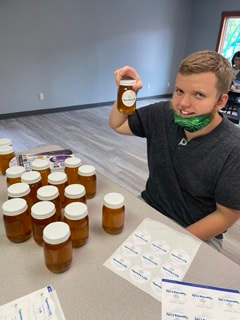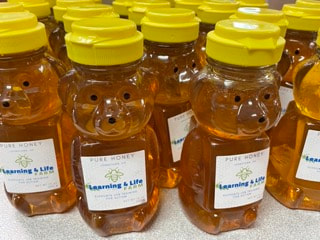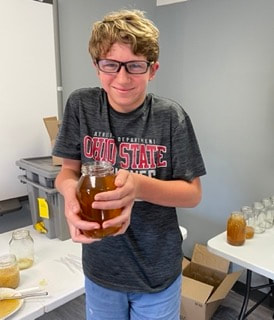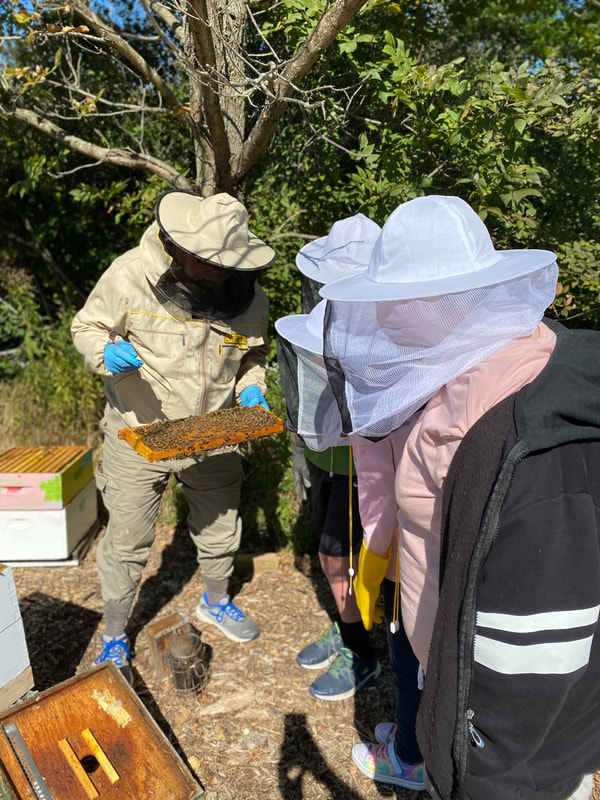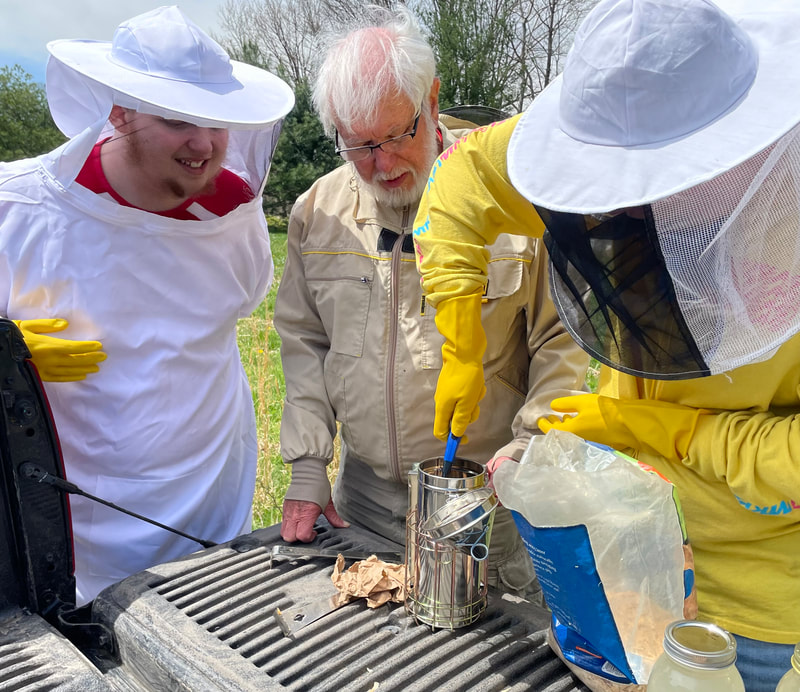Beekeeping At Learning 4 Life Farm
Our beekeeping program is in its third year here at Learning 4 Life Farm, led by our wonderful volunteer "Beekeeper Bob," a registered beekeeper with many years experience as a beekeeper and educator. The kids love helping Beekeeper Bob with safe beekeeping tasks and learning about the hives and honey bees.
Last year we had two hives, and this year thanks to a generous grant from The Bee Cause Project and Whole Kids Foundation, plus support from Beekeeper Bob and Mary Hooker and Conrad Hive and Honey, we have three beehives and a new apiary location at the top of our hill on the Farm.
We harvested our own honey this fall, which was a huge accomplishment! We are also selling Savannah Bee Company honey from the Pay it Forward project to help support our beekeeping program. Look for our honey at our Friday farm stands and special pop-up farmstand events.
Thank you so much to Beekeeper Bob Hooker and Mary Hooker for donating our first hives in 2021 and creating and maintaining our honey bee program in for our students on the autism spectrum here at the Farm and TLS Northeast- Johnstown.
Beekeeping Safety and Protocols at Learning 4 Life Farm and The Learning Spectrum
Every student interested in participating in our beekeeping program is required to fill out a permission slip signed by a parent and read over our procedures linked below. All students, staff and volunteers wear protective clothing while working the hives or observing, and we regularly review bee safety and first aid. Our bees are gentle and rarely sting, but we always want to follow best practices to stay safe! Check out the links below for more about our bee program safety and protocols.
Beekeeping Safety and Protocols at Learning 4 Life Farm and The Learning Spectrum
Every student interested in participating in our beekeeping program is required to fill out a permission slip signed by a parent and read over our procedures linked below. All students, staff and volunteers wear protective clothing while working the hives or observing, and we regularly review bee safety and first aid. Our bees are gentle and rarely sting, but we always want to follow best practices to stay safe! Check out the links below for more about our bee program safety and protocols.

